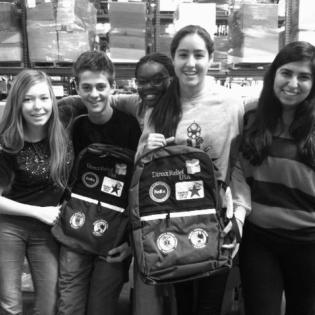The Power of Children
How can students create positive change in our community?
This is a Project Based Learning (PBL) unit. The students identify needs in their community and research and form small groups to research and plan a service-learning project (including a budget and timeline). At the end of the unit, they hold a "Service-Learning Expo," where the students present their projects. The participants vote on the best project, which is implemented by the class. This unit follows the 6 Steps of Project Based Learning.
Students are introduced to philanthropy and service-learning. They learn about different needs in the community and community organizations that address these needs. Students are introduced to the full scope of the Project Based Learning (PBL) project. This unit follows the six steps of project based learning. Students establish the "Knows and Need to Knows" for the project. They make a problem statement that drives their service.
In this lesson, students dream big and envision what it would look like to have the problem solved. They discuss steps to take and what they need to learn in order to accomplish the task. They take personal responsibility for carrying out the expectations they set for the final service-learning project proposal.
Students determine which community need they want to address with a service project. Once a priority need has been determined, they research related nonprofit organizations with a student-generated list of questions.
Students form groups, sign group agreements, delegate tasks, and begin forming their service-learing project proposal. The teacher provides mini-lessons to individuals, as needed, who bring information back to groups on presentation skills, budgeting, and service-learning procedure.
Step Five is where students create the presentation of the service-learning project they are proposing. They will receive feedback and then present their ideas in front of parents and community partners that you invite in. The presentations are a celebration of the learning that has happened up to this point.
Students evaluate their learning about philanthropy and the process of selecting a service-learning project. They write a guided reflection on their experience.
